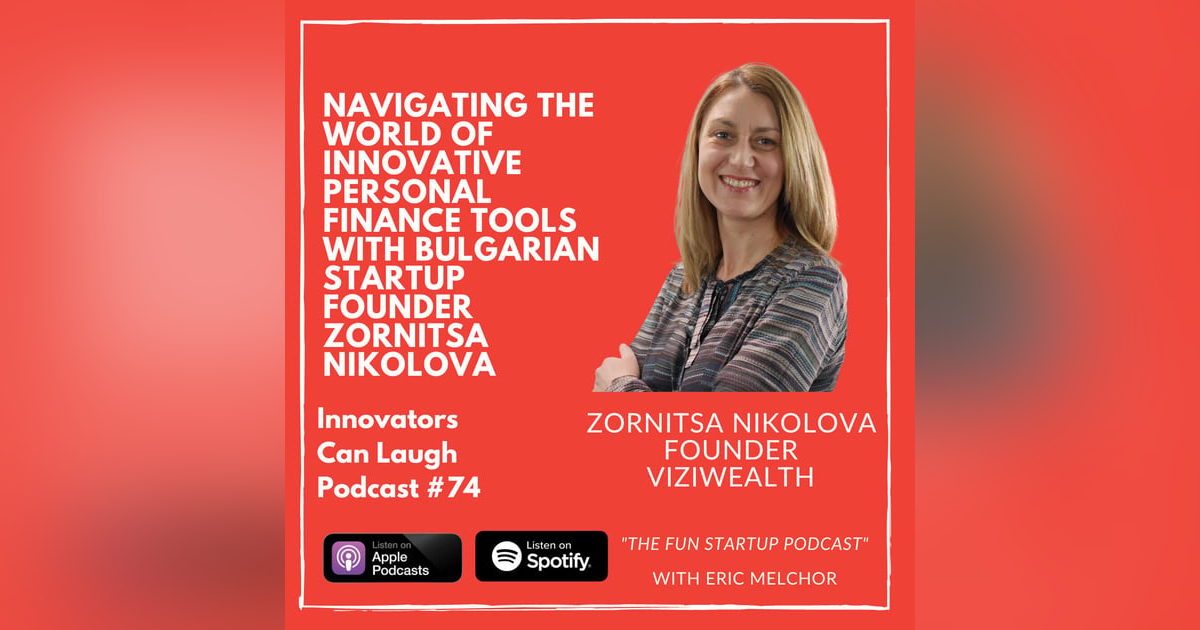Navigating the world of innovative personal finance tools with Bulgarian startup founder Zornitsa Nikolova

In the communist regime back in Soviet times, you didn’t have a labor market. The job is found for you. So if you had quit, you couldn’t easily find another job especially if you were not a communist party member. So in Zornitsa Nikolova’s eyes, her father was like a hero.
This shaped her beliefs and desire for personal freedom. For creating for yourself options when others didn’t see them. For fighting to survive and do what she really wants to do and not be somehow oppressed by the circumstances. This is why she is trying to create Viziwealth.
Tune in to hear Zornitsa’s story including:
15:53 – how has wealth management changed from ten years ago?
18:15 – what do users get excited about when they start using the platform?
23:25 – who was the first investor for Viziwealth and what was that experience like?
24:15 – if I would give you $10,000 to grow your business, how would you spend it?
25:44 – are there any channels that are helping you get new users?
29:20 – who is a brilliant entrepreneur in Bulgaria that you’d like to give a shout out to?
30:45 – a favorite movie you can watch again and again?
31:30 – along the way of creating Viziwealth, you learned a lot about __________.
Do you wish to connect with our special guest?
Visit Zornitsa Nikolova’s website: https://viziwealth.com/
Tune in to every conversation about exciting European Startups and Innovators on Apple Podcasts, Spotify, and Amazon! Leave a rating and review so we can keep making amazing interviews!
Listening on a desktop & can’t see the links? Just search for Innovators Can Laugh in your favorite podcast player.
Connect with Eric:
Visit his website: https://innovatorscanlaugh.com
For the Innovators Can Laugh newsletter in your inbox every week, subscribe at https://innovatorscanlaugh.substack.com
Past Guests:
----
Past guests on Innovators Can Laugh in
Tune in to every conversation about exciting European Startups and Innovators on Apple Podcasts, Spotify, and Amazon! Leave a rating and review so we can keep making amazing interviews!
Listening on a desktop & can’t see the links? Just search for Innovators Can Laugh in your favorite podcast player.
Connect with Eric:
Visit his website: https://innovatorscanlaugh.com
For the Innovators Can Laugh newsletter in your inbox every week, subscribe at https://innovatorscanlaugh.substack.com
Past Guests:
----
Past guests on Innovators Can Laugh include Yannik Veys, Ovi Negrean, Arnaud Belinga, Csaba Zajdó, Dagobert Renouf, Andrei Zinkevich, Viktorija Cijunskyte, Lukas Kaminskis, Pija Indriunaite, Monika Paule, PhD, Vytautas Zabulis, Leon van der Laan, Ieva Vaitkevičiūtė.
-----
Additional episodes you might enjoy:
#55 Yannik Veys - From creating the Uber for service professionals to growing Hypefury
#53 Tzvete Doncheva - Overcoming barriers to get into a VC with Tzvete Doncheva
#50 V...











